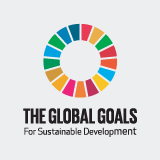Gender and Waste Nexus: Experiences from Bhutan, Mongolia and Nepal
Waste, unwanted and discarded material, is a growing problem worldwide that concerns everyone. Waste management is a cross-cutting issue linked to socioeconomic and environmental aspects. Sound waste management can address a number of challenges, particularly those relating to health, poverty, food security, resource management, climate change and equal participation.
The current gendered profile of the waste sector in Bhutan, Mongolia and Nepal is first and foremost the product of attitudes about and stereotypes of men and women directly linked to everyday life. Gender inequalities and norms are embedded in almost all aspects of waste management in these three countries and play out in distinctive ways throughout the entire value chain, mirroring existing socioeconomic structures.
This report provides a detailed analysis of the gendered nature of the waste sector in these countries. The report feeds into the Waste and Climate Change project, led by the United Nations Environment Programme, International Environmental Technology Centre (UNEP-IETC) together with partner organizations from Bhutan (WWF Bhutan), Mongolia (The Asia Foundation) and Nepal (LEAD Nepal), funded by the German Government’s International Climate Initiative (IKI).
Status: Completed
Type: Monograph
Author: UNEP-IETC and GRID-Arendal
Year of publication: 2019
Publisher: UNEP-IETC and GRID-Arendal
Place of publication: Arendal









